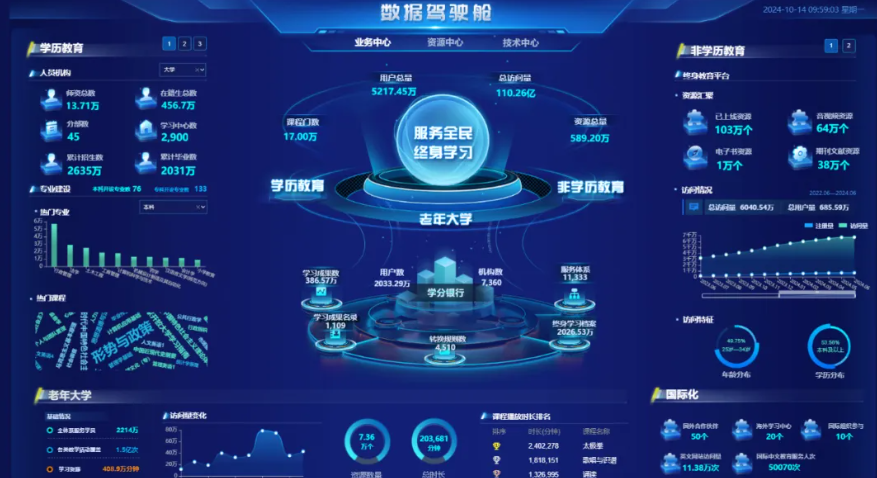 Editor's Note: General Secretary Xi Jinping emphasised at the National Conference on Education that the national education digitalisation initiative should be fully implemented, with efforts to expand the coverage of high-quality education resources and improve public services for lifelong learning.
Editor's Note: General Secretary Xi Jinping emphasised at the National Conference on Education that the national education digitalisation initiative should be fully implemented, with efforts to expand the coverage of high-quality education resources and improve public services for lifelong learning.
The Open University of China (OUC) has thoroughly implemented the educational digitalisation strategy, actively promoted the deep integration of digital technology and education, and been committed to building a ubiquitous and accessible lifelong education system. It has carried out numerous beneficial explorations in digital empowerment for lifelong learning, achieving tangible results.

In recent years, the OUC has applied big data analysis, visualisation, and monitoring and early warning technologies to comprehensively build a data sharing and application system suitable for the educational system. This system provides large-scale, personalised, and precise data-driven business application services for the educational system.
In further advancing the national education digitalisation strategy, the OUC has placed great emphasis on the data-driven digital transformation of its core businesses. It has comprehensively built a data cockpit system suitable for the educational system, providing standardised, intelligent, and automated data analysis and dynamic monitoring services, thereby playing a key role in teaching management and support services for teachers and students.
Since 2023, the OUC's Department of Digitalisation, in collaboration with the Academic Affairs Department, Department of Quality Monitoring and Control, Learning Resources Department, Department of Reform and Development (Office of Research Management), and Experimental College, has conducted thorough research on the needs of the headquarters and branches for "data-driven educational reform". Based on this research, they have collectively designed the Data Cockpit System. This system includes the main cockpit of the university and seven major business modules - admissions, academic affairs, teaching, examination, courses, research, and quality monitoring - comprising 257 business analysis indicators: 32 for admissions, 29 for academic affairs, 48 for examination, 33 for teaching, 17 for research, 34 for course resources, and 64 for quality monitoring. The Data Cockpit System achieves cross-regional, cross-level, and cross-institutional data service provision, business control, and anomaly warning functions, serving as a typical application of data-driven educational reform.
Currently, the Data Cockpit System has been promoted nationwide and is being piloted in 36 branches. A survey on system application satisfaction among branches shows that 96.55% of users frequently use the system, and 93% of users are overall satisfied with the system. Moving forward, the Department of Digitalisation will closely focus on the needs and feedback of teachers and students, with data-driven business transformation as the orientation. They will promote the construction of a high-reliability, high-standard, and high-performance data base, continuously advancing the innovative application of data in the entire process, elements, and flow of education. By fully activating the value of data, it will support the construction of a digital university.
Department of Digitalisation